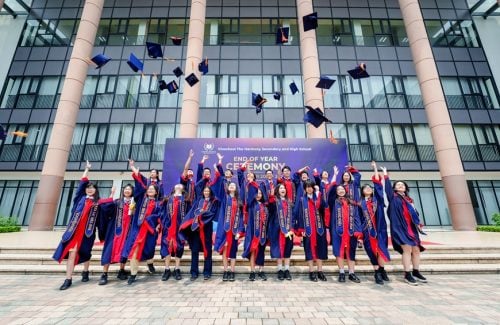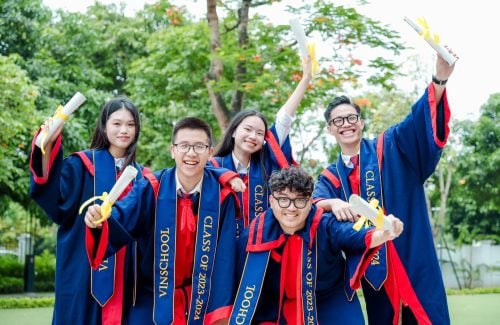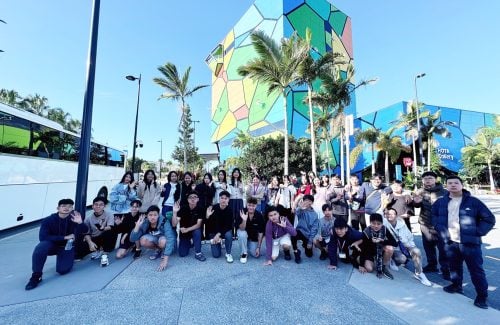Explore AS/A-Level Natural Science Programmes at Vinschool (Part 1)
The AS/A-Level natural science courses at Vinschool aim to help students develop a set of transferable skills including data processing and analysis, experimentation, applying the scientific method, and other skills needed for intensive scientific research at higher levels of studies. Such knowledge and skills are the foundation for students to advance in the fields of medicine, pharmacy, science and engineering.
In the 2022 AS/A-Level biology exams, 55.6% of Cambridge students at Vinschool achieved A*/A (excellent scores), significantly higher than the average global rate of 33% in the same year according to CAIE Global. This first article identifies the factors in the AS/A-Level biology programme at Vinschool that enable Vinsers to achieve such strong results.
What does the AS/A-level biology curriculum include?
In the programme, students explore the diverse social, environmental, economic and technological aspects of biology. The lesson content in Vinschool’s AS/A-Level biology programme is designed based on the following key concepts: Cells as the units of life; Biochemical processes; the DNA, the molecule of heredity; Natural selection; Organisms in their environment; and Observation and experimentation. A-Level biology students learn additional topics including: Energy and respiration, Photosynthesis, Homeostasis, Control and coordination, Inheritance, Selection and evolution, Classification, biodiversity and conservation, and Genetic technology. Some topics such as Classification, biodiversity and conservation, and Genetic technology are taught more in-depth in the A-level programme than in traditional biology programmes, in order to solidify the foundation of knowledge and skills for students to pursue leading medical careers such as biomedical engineering and genetics.
Throughout the programme, in addition to theoretical sessions, under teachers’ guidance, students spend at least 25% of their time on individual or small-group practical work in the laboratory. This 25% does not include time spent on observing experiment and simulation demonstrations. Practical activities help students develop experimental and research skills, enhance the acquisition of theoretical knowledge, and understand the connection between theory and experimentation in scientific research.
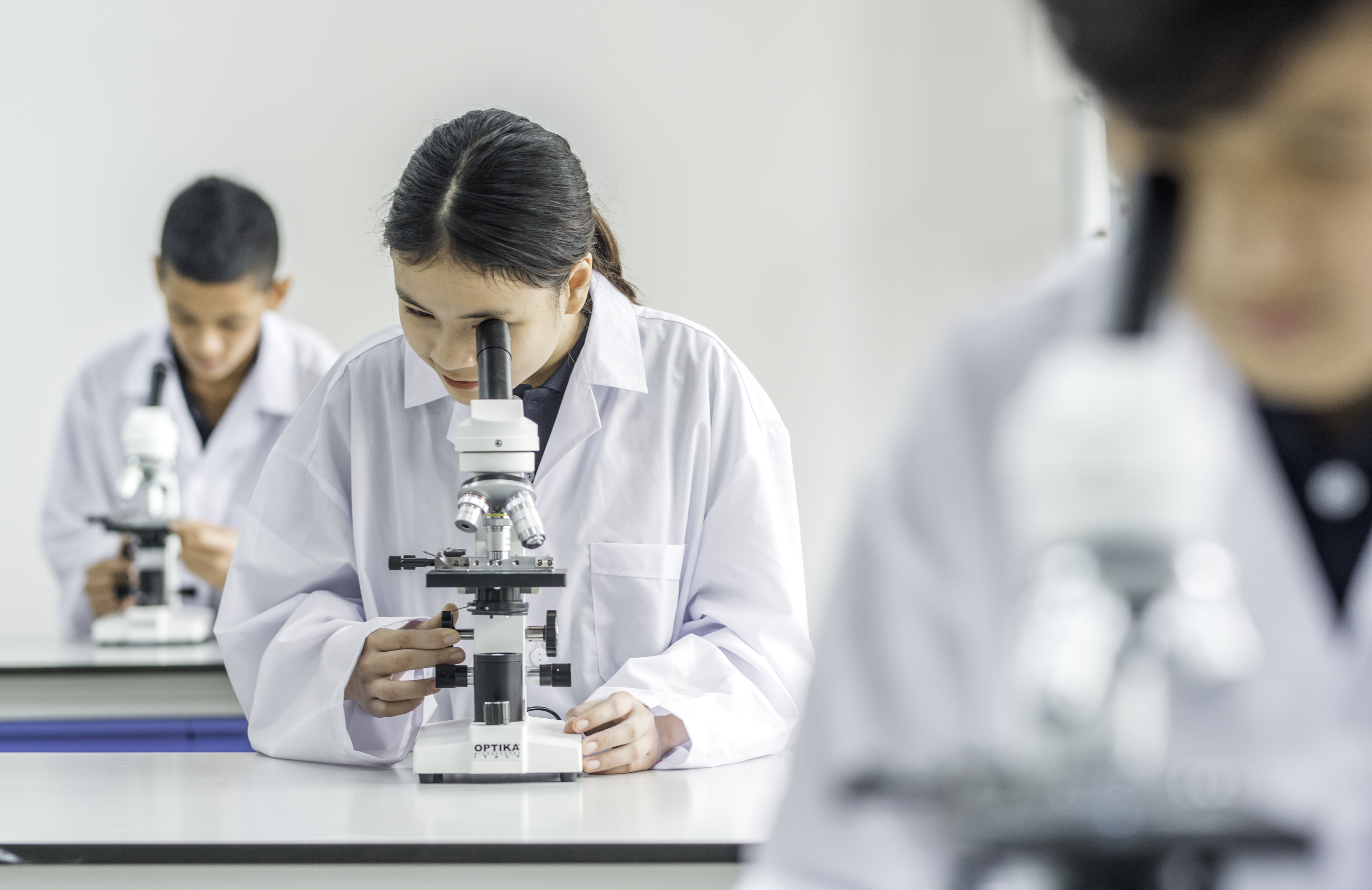
How are students assessed in AS/A-Level biology?
Students are assessed through 5 papers including 3 written and 2 practical skills tests. The papers assess students’ understanding of lesson content, their ability to analyze, apply and evaluate information, and their experimental and research skills.
In particular, practical tests focus on the following skills: research planning; working with laboratory instruments; measurement and observation; presentation of data and observations; analysis, conclusion and evaluation of experimental results. The questions asked can be based on biology topics beyond the syllabus content. Students will be provided with additional information and knowledge needed during the process.
To successfully learn AS/A-Level biology, students need a solid understanding of fundamental chemistry and mathematical principles, especially the ability to process data and carry out statistical calculations, as well as a solid foundation of experimental skills. The syllabus content in AS/A-Level biology is expanded upon the scientific knowledge and skills in the IGCSE programme, so students are encouraged to take IGCSE Co-ordinated Science in Grade 10 before enrolling in AS/A-Level biology in Grade 11 at Vinschool.
Nguyen Tu Minh, a former Cambridge Vinser at Vinschool The Harmony High School who achieved the “Top in Vietnam” status for A Level biology, shared: “There are many factors related to the teaching of biology at Vinschool that helped me achieve this award. First, our teachers let us do a lot of practical work in the laboratory. Furthermore, even when we studied online, we also got to participate in virtual labs and simulations. In addition, our teachers also discussed with us a lot of topics outside the syllabus, which helped us explore lots of interesting knowledge beyond the textbook.”
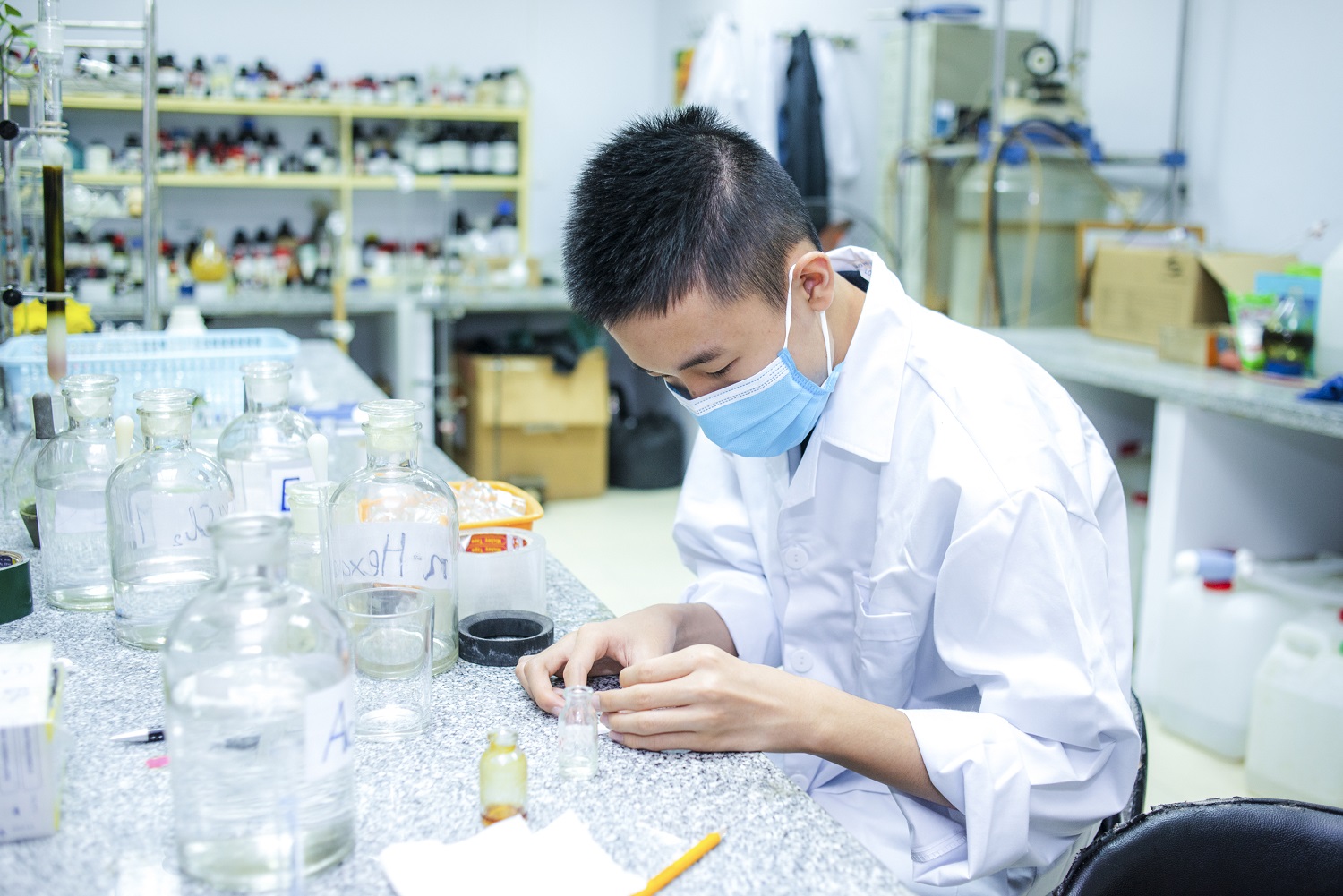
Developing the passion for science and ability to conduct scientific research outside the classroom
Vinschool students are also encouraged and provided with opportunities to develop their scientific research skills through competitions such as the Innovation Challenge or through national and international research projects. At the end of 2021, Nguyen Tu Minh, Nguyen Phan Ngoc Minh, Trinh Kieu Trinh (former Cambridge Vinsers from Vinschool The Harmony High School) and Do Mai Ha Anh (Vinser from Vinschool Times City High School) represented the Biotechnology, Medicine and Pharmacy Subcommittee to present their scientific research paper on the “black fungus” disease, caused by the fungus Mucor circinelloides, at the National Biotechnology Conference.
Vinschool is proud to be one of the Cambridge schools in Vietnam that offers the widest selection of AS/A-Level and IGCSE subjects. For further information about study programmes at Vinschool, please contact us via email ([email protected]) or phone (18006511) (select language and dial Extension 1).

